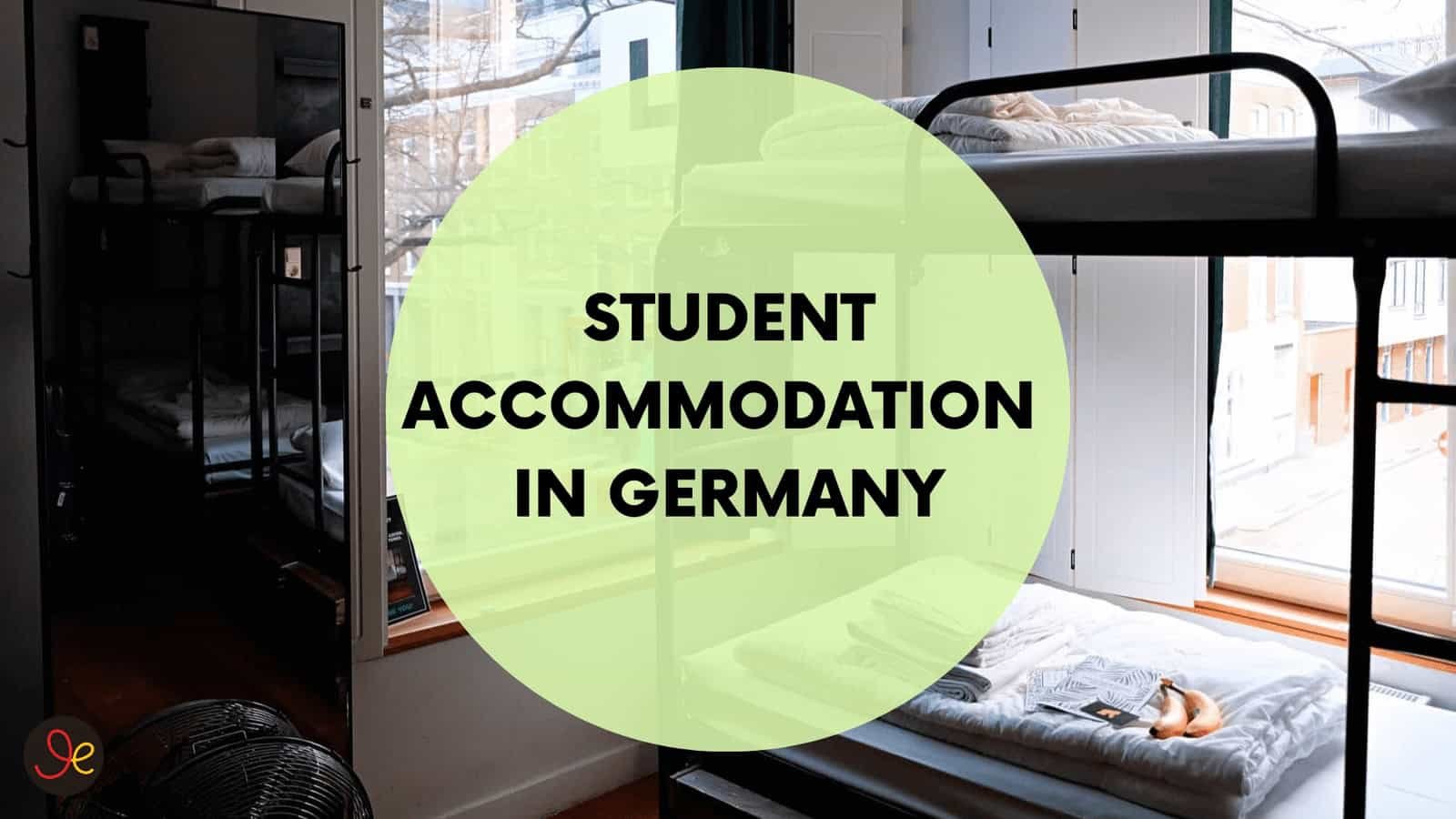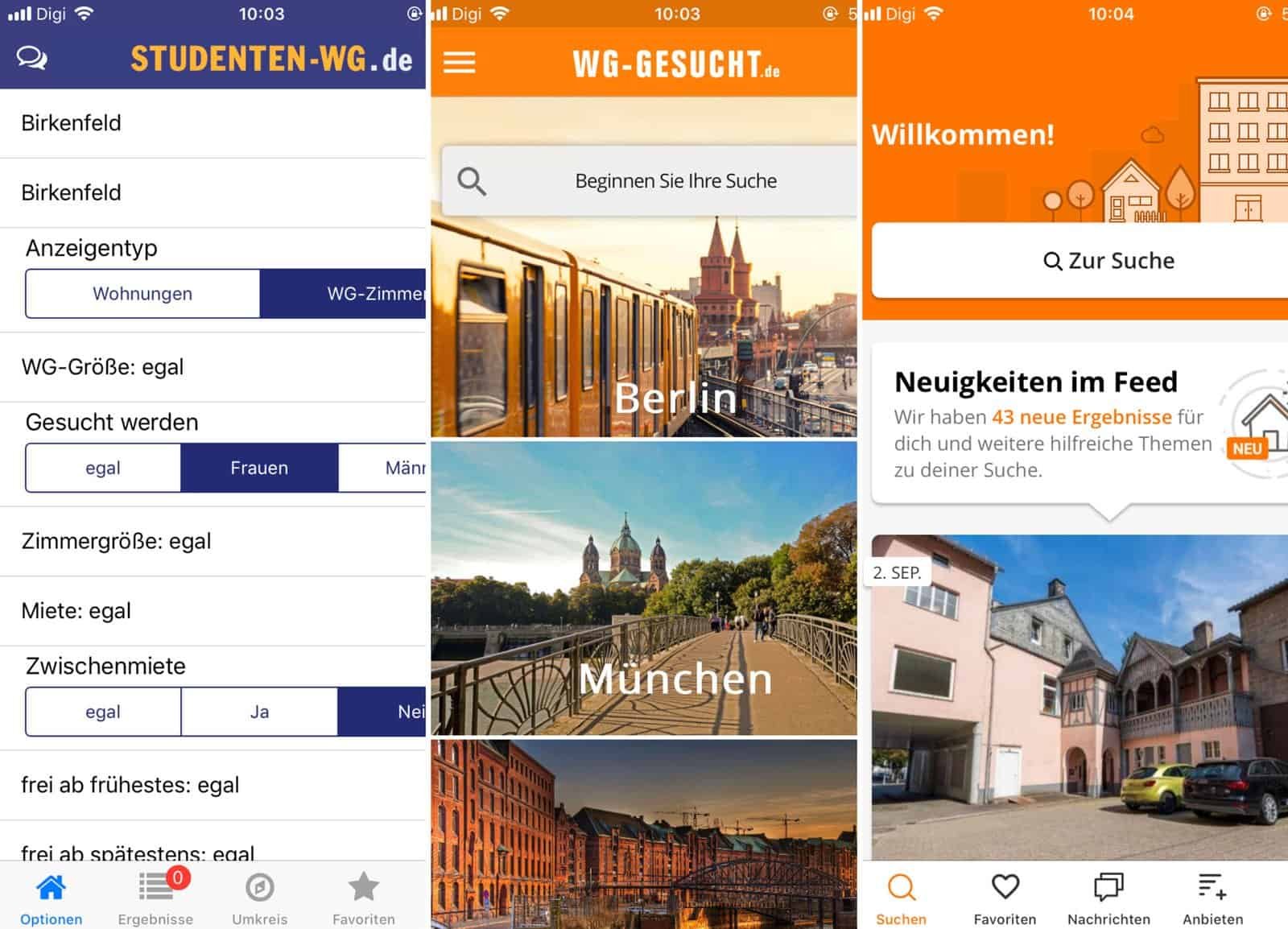Student accommodation in Germany
Estimated reading time: 5 minutes
Updated on: Feb 2023

TL;DR: The common types of accommodations for international students are student dormitory, shared falt, or a private apartment. While student dormitory is the cheapest and most convenient, the demand is usually high and waiting list is long. Students can look for suitable accommodation via apps and websites recommended below.
All packed up and ready to fly to Germany? One of the hardest obstacles, especially for international students, is finding a place to stay during their duration of study. Many people struggle in search of a suitable room and become discouraged. Here are some tips to aid in your search for student accommodation in Germany.
Types of accommodations
One of the best and cheapest options would be to live in the dormitories on the university campus. These hostels are reserved exclusively for students but are very popular due to their convenient location and affordable rent. One would have to apply months in advance to obtain a room or risk to be in the waiting list. Visit the university’s website to find out more about the application process.
Another popular option is a shared flat, or more commonly called a WG (Wohngemeinschaft). Usually one would have their own private bedroom but other facilities, such as the kitchen, bathroom and laundry room will be shared. Living in a WG is a good way to make new friends and learn about the german culture in your own home. In fact, students living in WGs usually make plans to socialise with each other. Many WGs near a university will be filled with other students, so getting help from your fellow housemates is a great way to get a head start on your first day.
There is also another type of WG called the Zweck-WG. At a Zweck-WG, the occupants are less interested to interact with their housemates, and the only reason they live together is to keep their living cost low. An occasional ‘Hello’ in the kitchen is considered polite. The people living here may also not necessarily be of the same age group.
A private apartment is just as it sounds. You have the entire place to yourself, which includes the bathroom and kitchen. Normally the rent for such houses are much higher than a shared flat. In Germany, the living room is considered a room. So a one-room apartment is a studio apartment, while a two-room apartment has one bedroom and one living room. It is also common for a small room to be labelled as a half-room. A 2.5-apartment has one living room, one normal sized bedroom and one small bedroom or study room.

How do you search for student accommodations in Germany?
Below is a list of popular apps students can use to search for rooms to rent. Filters can be placed on your searches based on location, price, size and type of accommodation. The respective landlords can also be easily contacted through the apps.
- WG-Gesucht
- Studenten-WG
- ImmoScout
Another way is to search for student accommodation in Germany is to search online. Here are some websites with numerous vacant homes. Some of these websites are in German.
- Ebay-kleinanzeigen
- Immowelt.de
- meinestadt.de
Rent and what to look out for
- No pets
- No smoking
- No loud noise or music after 11pm
What if you can't find an accommodation?
At popular universities, it can be very difficult to secure an accommodation due to the limited rooms available. Rent in such places can be very expensive too, and in cities such as Berlin, Munich, Stuttgart and Hamburg, the rent can go up to €700, €800 or even more!
In such cases, students can choose to stay further from the university.
Moreover, students will have to pay a semester contribution to their university and they will be issued a semester card. Students can travel using public transportation within the area covered by their semester card without paying additional fare.
It is common for international students to reach out to other students on Facebook groups. Students are encouraged to join relevant Facebook groups and get help from there.
Introduce yourself and ask nicely if they have a room to rent or if they can point you to the right website/person to get a room.
The group admins might also organise social meet ups such as BBQ during summer. It’s a good place to expand your network and to meet other students.
As a short term solution, students can also rent a room temporarily from other students, especially those who are going to be away during the summer holiday or are at a different town for their internship.
Try to look for a room as early as possible. Germany is a very popular study destination and as more and more students are enrolling to a German university, the competition for student accommodation in Germany will also increase.
You might also like

Article title

Article title
